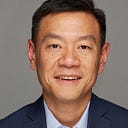The Most Important Career Advice
Two weeks ago, a medical student contacted me to seek some career advice. I was prepared to offer my usual reassurance and support, but the advice he was seeking was different. He asked, “Should I take a year off to pursue an internship with a public relations firm?”
Well…that was certainly unusual.
He explained to me about the current volume of misinformation out there regarding public health. He felt that doctors have to be more effective in combating all threats to health, including misinformation about health. I think we’re all pretty fed up with the misinformation that we’re seeing, and indeed this is a problem where “the time has come” to address.
I wanted to commend this medical student for “stepping up” to find a problem and to begin to orient his actions and career to address the problem.

In a world where there is so much to be done, I felt strongly impressed that there must be something for me to do.
~ Dorothea Dix, Social Reformer, Superintendent of Nurses during the Civil War
We have a lot of problems now. Believe it or not, this is good for your career. There will always be work for you…if you are aligned with solving problems. If you are not aligned with solving problems, but rather are worried about how you will continue with your old plan, you will struggle.
If you take the time to look around you, you will see the problems that need your attention. If you take the time to talk to people around you, you will see their needs, which is an opportunity for you to be of service.
Ask yourself this question: What is the problem that I would love to work on?
Then, a follow up question: How can I use my talents and abilities to address the problem? We’ll use the concept of the “+” below to answer this question.
The “+” of Your Career
I have a wonderful colleague, Tammy Chang, at the University of Michigan. (Go Blue!) We talk to many medical students and trainees about a term that we created, called the “MD+”. It is a combination of the “MD” and the “+”, the two parts that we will discuss below.
First, the “MD” part is the technical part of what doctors do. They go to medical school and all learn a common set of knowledge and skills. Everyone is getting the same thing. In your career, it’s the part that anyone similarly trained as you can do.

In business, we call that a generic “commodity”. When something is a commodity, it is undifferentiated from other products and has to compete on price. If you’re a commodity, you’re undifferentiated from other people who do the same thing as you. As a commodity, you’re in a weak position relative others because of your lack of differentiation.

Not to compare people with groceries…but have you noticed that some orange juice cost more than others? Why is there a difference? The products with the stronger differentiation commands a higher price because it’s less of a commodity.
Second, let’s discuss the “+”. The “+” is unique to you. Most people settle with being a commodity, but you know that you must go beyond that. I have an amazing colleague, Andrew Ibrahim, who brilliantly developed his “+” as an architect even as he trained to be a surgeon. Andrew is not a commodity. He has expended a lot of emotional and physical effort to develop his “+”. He is oriented towards a problem that needs his “MD+” and now has more opportunities than he can handle.
When you are a commodity, you have to seek opportunity. You have to apply to jobs. You get rejected. You don’t have negotiation leverage. When you develop your “+”, opportunities seek you. You get asked to assume positions. You are scarce and people have to wait in line to get their chance with you.
Ask yourself: What is going to be my differentiating factor? My “+”?
(In my next post, I will discuss the development of the “+” through the analogy of climbing a mountain.)
As you develop your “+”, you will find a lesser need to compete. You don’t have to compete because there are few to no people who are doing what you are doing. In the case of the med student who wants to develop skills in PR, when he goes and interviews for residency, he is not competing on grades or standardized test scores with the masses of other students. He has communications and PR experience in healthcare, and that is the foundation of his differentiated value.
When you don’t have to compete, you are then free to create. You career then becomes your unique contribution and true service to the world.
You are to become a creator, not a competitor. You are going to get what you want, but in such a way that when you get it every other person whom you affect will have more than he (or she) has now.
~ Wallace Wattles
